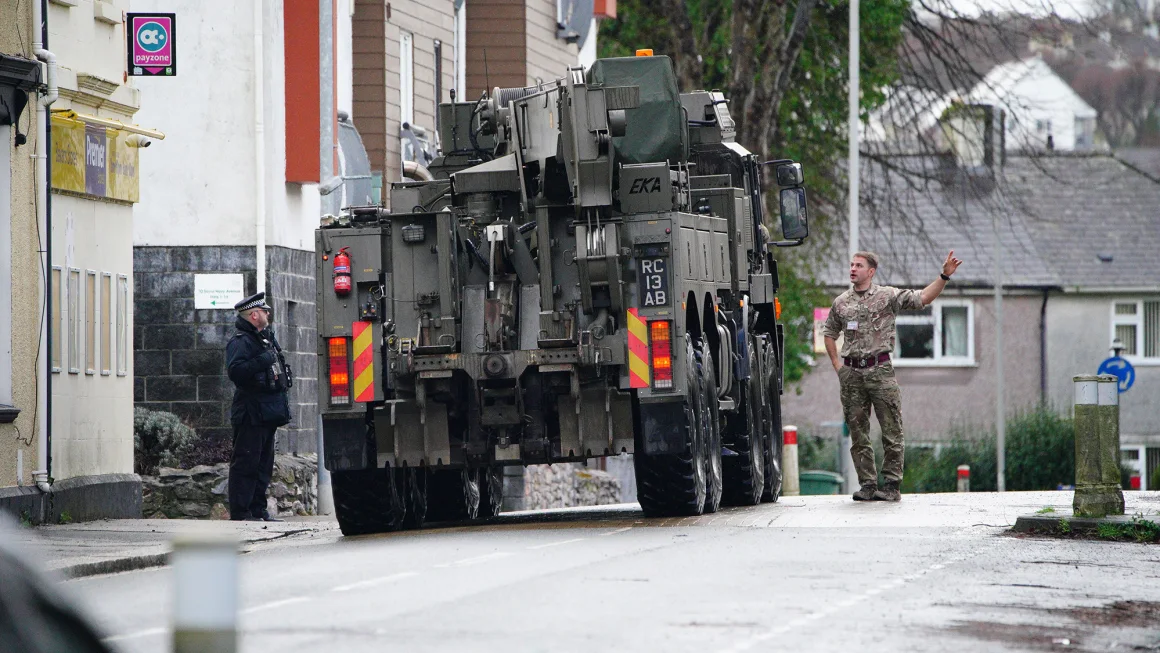In an unprecedented peacetime operation, thousands of residents in Plymouth, southwest England, were evacuated as authorities undertook the delicate task of removing an unexploded 500-kilogram (1,102-pound) World War II bomb. Discovered in the city’s Keyham area, the bomb’s presence prompted an immediate response from local and national agencies, underscoring the lingering threats of past conflicts in modern times.
Britain’s Ministry of Defence on Twitter details that the operation stands as “one of the largest UK peacetime evacuation operations since WW2.” Authorities established a 300-meter (984-foot) cordon and planned a carefully coordinated transport of the bomb from St. Michael Avenue to the Torpoint Ferry slipway. From there, the bomb is set to be safely disposed of at sea, a testament to the meticulous planning and concern for public safety by Plymouth City Council and military experts.
The decision to move the bomb rather than perform a controlled detonation on-site was made after careful consideration of the potential risks. Plymouth City Council explained, “After the expert assessment, it became apparent that if a controlled detonation were carried out in situ, there would be too high a risk of significant damage to properties in Keyham, including destroying several houses and flying debris which would potentially damage a wide number of properties.” This cautious approach highlights communities’ challenges when historical remnants surface in populated areas.
Superintendent Phil Williams of Devon and Cornwall Police encapsulated the situation during a press conference, stating, “There is an element of risk. It’s been assessed by the army who have deemed this is the lowest risk.” His words underscore the inherent dangers involved in handling unexploded ordnance and the priority given to public safety.
Residents advised to vacate their homes by 2 p.m. local time, were expected to endure a brief three-hour absence, a minor inconvenience in ensuring the community’s safety. The operation also necessitated the temporary closure of the city’s trainline, suspension of ferries, and diversion of buses, reflecting the extensive planning and coordination among various city services to mitigate the impact of the evacuation.
The successful evacuation and bomb removal operation in Plymouth not only averted potential disaster but also served as a poignant reminder of the enduring impact of war on present-day communities. As cities evolve and expand, the discovery of unexploded ordnance from conflicts past necessitates a blend of historical awareness, technical expertise, and civic responsibility. Plymouth’s response to this unexpected challenge exemplifies how collaboration and careful planning can overcome the latent dangers of history that lie beneath our feet.





















